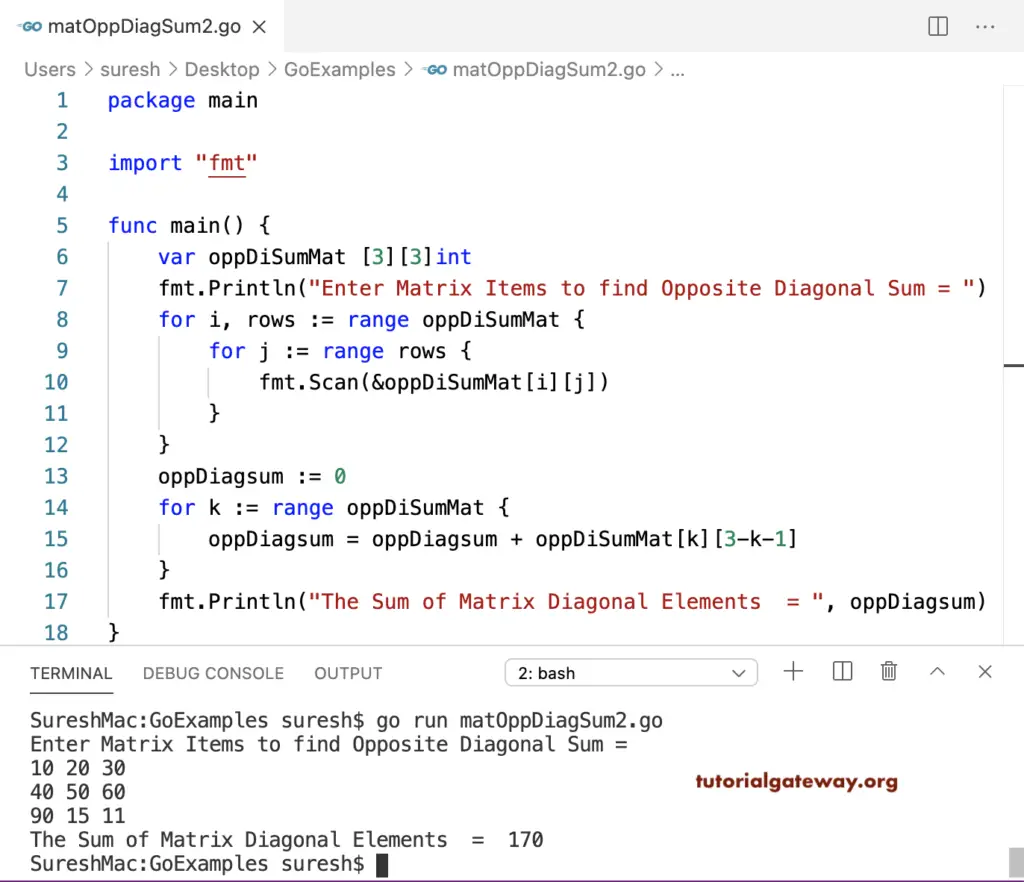Write a Go Program to Find the Sum of the opposite diagonal items in a Matrix. In this Go Matrix Opposite Diagonal example, we use for loop to iterate the Matrix row items and calculates (oppDiagsum = oppDiagsum + oppDiSumMat[i][rows-i-1]) the sum of opposite diagonal items.
package main
import "fmt"
func main() {
var i, j, rows, columns int
var oppDiSumMat [10][10]int
fmt.Print("Enter the Matrix rows and Columns = ")
fmt.Scan(&rows, &columns)
fmt.Println("Enter Matrix Items to find Opposite Diagonal Sum = ")
for i = 0; i < rows; i++ {
for j = 0; j < columns; j++ {
fmt.Scan(&oppDiSumMat[i][j])
}
}
oppDiagsum := 0
for i = 0; i < rows; i++ {
oppDiagsum = oppDiagsum + oppDiSumMat[i][rows-i-1]
}
fmt.Println("The Sum of Matrix Diagonal Elements = ", oppDiagsum)
}
Enter the Matrix rows and Columns = 2 2
Enter Matrix Items to find Opposite Diagonal Sum =
10 20
30 40
The Sum of Matrix Diagonal Elements = 50Golang Program to Find the Sum of the Opposite Diagonal elements in a Matrix using For loop range.
package main
import "fmt"
func main() {
var oppDiSumMat [3][3]int
fmt.Println("Enter Matrix Items to find Opposite Diagonal Sum = ")
for i, rows := range oppDiSumMat {
for j := range rows {
fmt.Scan(&oppDiSumMat[i][j])
}
}
oppDiagsum := 0
for k := range oppDiSumMat {
oppDiagsum = oppDiagsum + oppDiSumMat[k][3-k-1]
}
fmt.Println("The Sum of Matrix Diagonal Elements = ", oppDiagsum)
}

